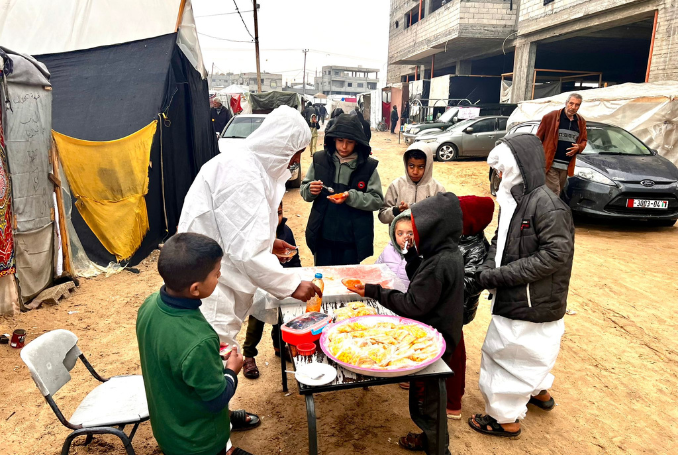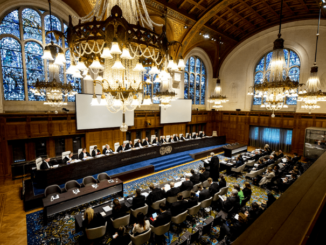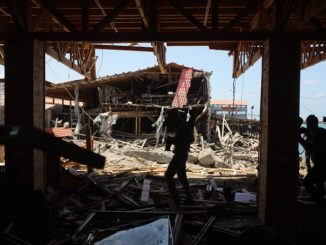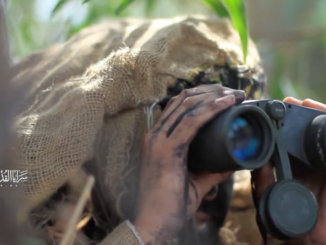
While our hearts broke at the separations, there was a glimmer of relief – fewer mouths to feed meant a slightly larger share of meager rations for those left behind.
“Is it normal to forget the agonies of war once our bellies are full?’’ I asked my husband, savoring the taste of three precious loaves of bread – a treasure unearthed from the depths of scarcity that had plagued us for seven long months in the desolate northern Gaza.
When Israeli Defense Minister Yoav Gallant thundered his decree on October 9 to cut off essentials – food, water, electricity, and gas – it felt like the final blow in a symphony of suffering. Yet, in my naivety, I dismissed his words as mere bluster, unable to fathom the misery and despair that lay ahead.
My husband, however, took a more cautious approach, stockpiling the basics: Rice, flour, and most crucially, milk and cereal for our infant daughter, Lya, whose innocent laughter served as a beacon of hope. At the time, we expected a short-lived war, thus storing rations accordingly.
By the second week of war, as Israel pushed for mass displacement from northern to southern Gaza, under the pretext of ‘safety’ – as in allowing the people to reach previously-designated ‘safe zones’ – the air crackled with tension and uncertainty.
We found ourselves torn between the instinct to flee and the desire to hold onto what little we had left.
Believing that there is nowhere safe in Gaza, as reiterated by many international organizations throughout these seven months, we eventually decided to stay.
Refusing to Leave
Under heavy bombs and artillery, and refusing to leave their houses until the last breath, many of my husband’s relatives rushed to our house in the center of Gaza City with nothing but their clothes, seeking refuge and sustenance.
By November, our home became a sanctuary for over 70 members of our family. Each room served as a makeshift shelter for five to 15 people, including children. The walls echoed with the cries of children and the whispered prayers of the weary.
Adapting to scarcity, we rationed food with grim determination and shared our stored supplies with the displaced, each meal a testament to our unwavering resolve.
Our breakfasts were reduced to crumbs of bread and sips of bitter coffee – if lucky, a meager bowl of rice for lunch, and often nothing for dinner – unless you had a piece of biscuit tucked away in a pocket.
As Israeli threats loomed, some relatives chose to flee south, bidding tearful goodbyes with uncertain futures. While our hearts broke at the separations, there was a glimmer of relief – fewer mouths to feed meant a slightly larger share of meager rations for those left behind.
By December 2023, we were displaced to another house, where we sought refuge for 50 days. The blockade further tightened, leaving us with no breakfast and only one meal per day.
Relentless and unforgiving hunger gnawed at us, forcing my body to consume itself, resulting in a 15-kilos weight loss. Rice, once abundant, became a luxury reserved for the fortunate few.
The Khubbayza
Amidst the chaos and despair, a beacon of hope emerged – the Khubbayza, the Mallow, once dismissed as mere foliage, now stood as a symbol of resilience, a testament to the human spirit’s refusal to surrender to despair.
It used to be a neglected grass – never desired but by our grandparents and ancestors. Never ever been brought for money. They either collected it from sidewalks or dry lands.
With ingenuity and resourcefulness, we transformed this humble grass into a lifeline, crafting dishes that sustained us in our darkest hours. Sharing the recipes together, we made Molokhia, Omelette and pastries out of it.
With the Khubbayza as the only solution to cope with famine, some citizens tended to buy it from the markets in return for a number of shekels. Others risked their lives to collect it from lands along the fence with Israel, using it as a tool to afford a source of income for their families.
Knowing that its season comes to an end by the end of winter, we were extremely worried about what new kind of grass we will eat when it disappears – maybe trees’ leaves?
Relief
As the seasons shifted and the Khubbayza waned, April brought unexpected relief. Markets overflowed with fresh vegetables and fruits, offering a respite from months of scarcity. Bakeries reopened, and the simple joy of eating as much bread as we desired felt like a luxury beyond measure.
Now, I will no longer sleep hungry.
I no longer have to be shy asking for one more piece of bread.
In the midst of bombardment, displacement, fear and loss of home and family, hunger proved to be the harshest adversary.
I recall praying for a full belly before death, a testament to the profound impact of famine amidst war.
I even recall days when I wished for hunger to come to an end, even if that meant the continuation of war.

– Noor Alyacoubi is a Gaza-based writer. She studied English language and literature at al-Azhar university in Gaza City. She is part of the Gaza-based writers’ collective We Are Not Numbers. She contributed this article to The Palestine Chronicle.








Be the first to comment